Is being a Income Tax Officer your dream career option? Check out the complete step by step process on how to become an Income Tax Officer, Eligibility, Exams, Skills Required and Salary in 2024.
An Income Tax Officer (ITO) is a government official who maintains tax accounts for government entities and collects revenues in the form of tax. They ensure all businesses and citizens pay taxes on time and assess the financial statements and returns of organizations. Every year, there are around 4100 new openings for various income tax officer job roles over the past decade.
There are two main routes to becoming an Income Tax Officer in India: Through the SSC CGL Examination or UPSC Civil Services Examination. Additionally, Aspirants must qualify 10+2 with a 50% mark and get an undergraduate degree in any field. The Income tax officer's salary per month ranges from INR 47,600 to INR 1,51,100.
Table of Contents:
- How to Become an Income Tax Officer?
- Who is an Income Tax Officer?
- What does an Income Tax Officer do?
- Types of Income Tax Officers
- Skills Needed to Become an Income Tax Officer
- Career Scope for Income Tax Officer
- Salary of An Income Tax Officer
How to Become an Income Tax Officer after 12th?
To become an ITO, one needs to have a Bachelor's degree from a recognized university and must have cleared either the SSC CGL Exam or the UPSC Exam. Additionally, knowledge of taxes, accounts, maths, and statistics is crucial for aspiring candidates. Candidates can read the step-by-step process of how to become an Income Tax Officer below.
- Step 1: Get a Degree and Enhance Relevant Skills
- Step 2: Meet the Eligibility Criteria for SSC CGL/ UPSC CSE
- Step 3: Register and Appear for SSC CGL/ UPSC CSE
- Step 4: Complete Document Verification and Physical Test
- Step 5: Take the Departmental Exam for Income Tax Officer
Step 1: Get a Degree and Enhance Relevant Skills
Aspirants must complete their UG level education with their preferred specialization, like BA, B.Com, B.Sc etc. Some courses and specializations which can be pursued by students to become an income tax officer are given below:
Undergraduate courses
Students can pursue an undergraduate degree to be eligible for the income tax officer examination. Listed below are some of the UG courses and their entrance exam details:
|
Course |
Entrance Exam |
|
CUET UG, NPAT, IPU CET, BHU UET |
|
|
CUET, IISER IAT, BHU UET, SUAT |
|
|
SET, IPMAT, CUET, IPM Aptitude Test, NMIMS NPAT |
|
|
CUET, SET, IPU CET, MET, DSAT |
|
|
SET, CUCET, CUET and NPAT |
|
|
AUET, CUET, ET, SET, LPU-NEST, NPAT, DAV-UET |
|
|
BHU CUET, CUET, DUET, UPCATET |
Certificate Courses
Candidates can also opt for pursuing certification courses offered in both online and offline modes to prepare for the competitive exams to become an income tax officer. Below are some of the certification courses:
- Advanced Course on Income Tax Assessment and Appeal
- Advanced Certificate Course on GST
- Certification Course on GDS
- Certificate Course on Return Filling
- GST Course for College and Universities
- Certificate Course on International Trade
Step 2: Meet the Eligibility Criteria for SSC CGL/ UPSC CSE
The eligibility to become an Income Tax Officer (ITO) in India depends on the route you choose. SSC CGL or UPSC requires the applicants to fulfill a set of requirements to be eligible for the examination. Given below are the eligibility requirements for SSC CGL and UPSC exams:
SSC CGL Eligibility Criteria
Candidates are required to fulfil certain eligibility criteria before applying for the SSC CGL exams to become an income tax officer. Given below are the SSC CGL exam eligibility criteria:
- Applicant must be 18-30 years of age at the time of application for the SSC CGL exams.
- Age relaxation of 3 years has been granted to the OBC category by the conducting authorities.
- The educational requirements vary based on the job post and will be released by the conducting authority.
- The applicant must be a citizen of India.
Read More: SSC CGL Eligibility Criteria
UPSC Eligibility Criteria
To register for the UPSC exams, candidates must fulfil certain eligibility criteria such as age limit, educational qualification, nationality, etc. Listed below are the UPSC eligibility criteria:
- Candidates must be between the ages of 21 to 30 years to register for the UPSC exams
- Should have completed undergraduate degree with atleast 50% aggregate marks from any recognised university.
- The applicant must be a citizen of India.
- A relaxation of 10-15 years is allowed for Ex-servicemen and PwD candidates within the age limit.
Read More: UPSE Eligibility Criteria
Step 3: Register and Appear for SSC CGL/ UPSC CSE
The key step of becoming an Income Tax Officer is to appear for the SSC CGL or UPSC Civil Service exam. After checking the eligibility requirements, they must apply online by filling out the form and paying the requisite application fee of INR 100 on the official website. The SSC CGL exam will be conducted in four phases, Tier I, Tier II, Tier III, and Physical Test.
Candidates willing to register for the UPSC exams can directly visit the official website of UPSC (www.upsconline.nic.in) and submit the one-time online application with all the required information
Appear for the SSC CGL
Next, candidates must take the Tier I Prelims exam. The SSC CGL income tax officer exam syllabus will include topics from reasoning, general intelligence, English comprehension, quantitative aptitude, and general awareness. Given below are SSC CGL important details:
- The Tier II exam will be conducted further for candidates who qualified Tier I exam.
- In the SSC CGL Tier II exam, candidates must appear for two compulsory papers and one of two optional papers, depending on the post.
- Papers 1 and 2 of the Tier II exam will include topics from the English language and comprehension and quantitative reasoning.
- Exam marks of the Tier II exam are considered by the authorities while factoring in the final marks.
- Next, SSC CGL applicants must take the Tier III exam, a descriptive paper of 100 marks.
- After qualifying in the Tier III exam, candidates shortlisted for the Physical Test
- Candidates who have qualified in all three levels will appear for the Tier-IV exam which is a physical and medical test followed by document verification.
| SSC CGL Exam Details | SSC CGL Exam Pattern |
Appear for UPSC Exams
Candidates who have registered for the UPSC exams must appear for the examination which is conducted in three levels: Preliminary, UPSC Mains, and an Interview round. Below are the important details about the UPSC exams:
UPSC Preliminary Exam
Once they have reviewed the requirements, they can apply online and begin preparations for the Preliminary Exam.
- The preliminary exam is of 200 marks and consists of two papers. Each paper lasts 2 hours and can be attempted in English and Hindi.
- Students who are Physically Disabled are allowed 20 minutes extra to complete each paper.
- Importantly, English Comprehension will not have Hindi Interpretation.
UPSC Mains Exam
After clearing the UPSC Prelims exam, candidates must fill out the UPSC DAF form to take the Main exam and upload it on the official portal.
- The UPSC Mains exam contains nine papers, each requiring thorough preparation.
- Candidates have to qualify for all nice papers.
- Questions will be subjective in the UPSC Mains exam.
- Selections for further rounds will depend on the main score.
| UPSC Syllabus | UPSC Exam Pattern |
UPSC Interview Round
Qualified candidates need to participate in the final round of the UPSC Interview. The personality test determines the intelligence quotient of the candidates, and they are evaluated on 275 marks. Final selections will be based on the aspirant's Main exam marks and Interview scores.
Training/Certification
Once candidates have qualified for the final UPSC Civil Services exam, they will undergo training at Lal Bahadur Shastri National Academy of Administration for 24 months.
Also, Check: SSC CGL vs UPSC: Major Differences & Posts
Step 4: Complete Document Verification and Physical Test
Candidates who appeared for SSC CGL exams will participate in a medical fitness exam and a physical test in the next stage of the SSC CGL selection process. As part of the eligibility criteria, candidates must meet the prescribed physical standards set by the government.
As a next step, candidates need to proceed with document verification. Once they receive their final SSC CGL marks, successful candidates will be eligible to be hired as Income Tax Officers.
However, candidates must work as Income Tax Inspectors for three years to qualify for the designation of Income Tax Officer. Moreover, departmental exams are necessary for candidates to be promoted to Income Tax Officer.
| How to Prepare for SSC CGL? | How to Crack SSC CGL in First Attempt? |
Step 5: Take the Departmental Exam for Income Tax Officer
After completing three years as an Income Tax Inspector, candidates must appear for the 200 marks Income Tax Officer exam to be promoted to Income Tax Officer. Authorities will notify candidates of vacancies, and eligibility to appear for the MCQ exam.
Who is an Income Tax Officer?
An Income Tax Officer handles tax-related matters at an official level of the Central Board of Direct Taxes. They are responsible for reviewing and examining businesses and their tax accounts and ensuring all taxes are being paid promptly and correctly.
Moreover, an ITO checks a business's financial papers, assets, and liabilities when filing the Income tax return. Additionally, their job is to ensure the parties follow all direct taxation acts.
What does an Income Tax Officer do?
Income Tax Officers operate under the CBDT, which is responsible for dealing with matters of collection of taxes. Some of the main roles of an Income Tax Officer are,
- Evaluation of tax returns.
- Checking discrepancies in the filing of financial statements and returns.
- Responsible for matters relating to audit, tax refund or TDS.
- Additionally, Income Tax Officers aim to detect defaulters by investigating and looking for evidence against forms or organisations.
Types of Income Tax Officers
Candidates who want to know the method to become an Income Tax Officer must check the types of ITO professions.
1. Assistant Commissioner of Income Tax:
The role of an Assistant Commissioner of Income Tax is to head tasks related to the public accounts committee and audit. Additional responsibilities are subjects related to the estate-duty act, wealth-tax act, expenditure-tax Act, Benami transaction Act and more.
2. Deputy Commissioner of Income Tax:
The Deputy Commissioner of Income Tax aims to check the ITO registers for audits and disposals. Moreover, they are the concerned person regarding pre-search queries and reconnaissance tasks. Also, the DC of IT prepares appraisal reports and works hands-on with other departments.
3. Joint Commissioner of Income Tax:
Joint Commissioner of Income Tax and Deputy Commissioner of Income Tax have similar responsibilities. They work with different teams, such as revenue intelligence, customs, etc.
4. Additional Commissioner of Income Tax:
Likewise, the AC of Income Tax has the same roles mentioned above as the Joint Commissioner and Deputy Commissioner of Income Tax.
5. Commissioner of Income Tax:
The Commissioner looks after internal audits and is responsible for preserving the interests of both assesses and revenue.
6. Chief Commissioner of Income Tax:
The Chief Commissioner of Income Tax is responsible for the disciplinary and vigilance of the department. In addition, they check confidential matters, assess property returns and keep a check on budget and expenditure.
Skills Needed to Become an Income Tax Officer
One of the most important aspects of becoming an Income Tax Officer is knowing the skills required in the sector.
- Effective Communication Skills: It is a must-have for candidates who want to build their career as an income tax officer, as they are required to communicate with different groups and departments, and it is crucial for them to have the right skill sets to communicate well.
- Quantitative Skills: Another important skill is to have a way with numbers, as they deal with the financial aspects of businesses, government and public properties.
- An Eye for Detail: Candidates who wish to become Income Tax Officers must be excellent in investigating matters, surveying, assessment, research and correction.
- Time Management: Everything in the Income Tax department is time-bound and requires tasks to be completed within a specified time frame, like within a financial year. Hence, they must manage their time and tasks well to ensure they are in sync and tasks are completed within the deadline.
Career Scope for Income Tax Officer
Candidates can apply for posts of Junior Income Tax Officer and Senior Income Tax Officer. Other than that they can check the levels of career progression in the Department of Tax. Listed below are some of the job designations of Income tax officers at various levels with their salary details:
|
Job Role |
Average Salary |
|
Tax Assistant |
INR 3.4 LPA |
|
Inspector of Income tax |
INR 10.5 LPA |
|
Income Tax Officer |
INR 9.0 LPA |
|
Assistant Commissioner of Income Tax |
INR 11.2 LPA |
|
Deputy Commissioner of Income Tax |
INR 15.0 LPA |
|
Chief Commissioner |
INR 20 LPA |
Salary of An Income Tax Officer
The average income tax officer salary ranges from INR 3-20 LPA based on the job designation and experience. An Income Tax Officer Salary per July 2023 data showcases an average base pay of INR 51,990, with an additional compensation of INR 25,247.
Based on the designations in the Income Tax department, the monthly salary for each post is available below (Source: Payscale)
|
Income Tax Designation |
Average Entry-Level Salary |
Average Salary after 3+ years of Experience |
|
MTS |
INR 2.16 LPA |
INR 4.64 |
|
LDC |
INR 2.9 LPA |
INR 5.2 LPA |
|
Notice Server |
INR 2.4 LPA |
INR 7.5 LPA |
|
Tax Assistant |
INR 2.5 LPA |
INR 6.3 LPA |
|
Sr. Tax Assistant |
INR 2.7 LPA |
INR 7.5 LPA |
|
Jr. Income Tax Officer |
INR 6.8 LPA |
INR 9.0 LPA |
|
Sr. Income Tax Officer |
INR 8.2 LPA |
INR 12 LPA |
|
Assistant Commissioner of Income Tax |
INR 7.6 LPA |
INR 18 LPA |
|
Deputy Commissioner of Income Tax |
INR 8.4 LPA |
INR 33 LPA |
|
Joint Commissioner of Income Tax |
INR 9.1 LPA |
INR 34.8 LPA |
|
Additional Commissioner of Income Tax |
INR 4.4 LPA |
INR 9.6 LPA |
|
Commissioner of Income Tax |
INR 27.3 LPA |
INR 27.3 LPA |
|
Principal Commissioner of Income Tax |
INR 9.0 LPA |
INR 10.5 LPA |
Source: incometaxmumbai.gov.in
Breakdown of Income Tax Officer Salary
A complete breakdown of the package received by the Income Tax Officers in India is given below.
|
Components |
Amount (INR) |
|
Basic Pay |
INR 44,900 |
|
HRA |
INR 10,776 |
|
TA |
INR 3,600 |
|
DA |
INR 7,633 |
|
DA on TA |
INR 612 |
|
Gross Earning |
INR 67,521 |
|
NPS Deduction of 10% |
INR 5,253 |
|
CGHS |
INR 350 |
|
CGEIS |
INR 30 |
|
Total Deduction |
INR 5,633 |
|
Net Earning |
INR 61,888 |
|
Government Contribution |
INR 7,355 |
Income Tax Officer Salary Allowances
Allowances which are offered to Income Tax Officers are mentioned below.
- Telephone/Mobile Bill
- Vehicle Fuel
- Paid Leaves
- Transportation
- House Rent
- Medical Perks
- Increments
- Dearness Allowance
- Pension
Nature of Work of An Income Tax Officer
The life of an Income Tax Officer includes technical and skill-based work. Candidates can enjoy an at-desk and on-field great job balance. However, overtime is a big concern for most with long working hours. Candidates who want to know how to become an Income Tax Officer must note that it is one of the most reputable jobs.
- Income Tax Officers must often travel to attend meetings to assess fraud and conduct raids.
- Although it is a full-time job, sometimes Income Tax Officers must stay overtime.
- An Income Tax Officer may be posted occasionally to different cities as per the requirements. However, the post is permanent.
- Working under specified time conditions is a must for Income Tax Officers.
- Candidates working as Income Tax Officers must be working for at least 45 hours.
Pros and Cons of Becoming an Income Tax Officer
Candidates can weigh the pros and cons of becoming an Income Tax Officer below.
Pros of Becoming an Income Tax Officer
- Being a Government Employee, an Income Tax Officer will enjoy all the benefits and perks offered by the centre.
- There is a huge opportunity in terms of growth as an Income Tax Officer in the Department of IT.
- It is an exciting job as it includes a lot of fieldwork and investigative work.
- It is a great opportunity for candidates looking to polish their existing numerical and analytical skills.
Cons of Becoming an Income Tax Officer
- Candidates may find it difficult to strike a balance between work and personal life.
- Overtime requirements demand the presence of Income Tax Officers around the clock.
- Candidates lacking the right skill set may struggle in the job role.
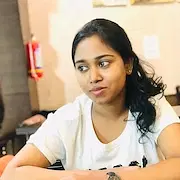
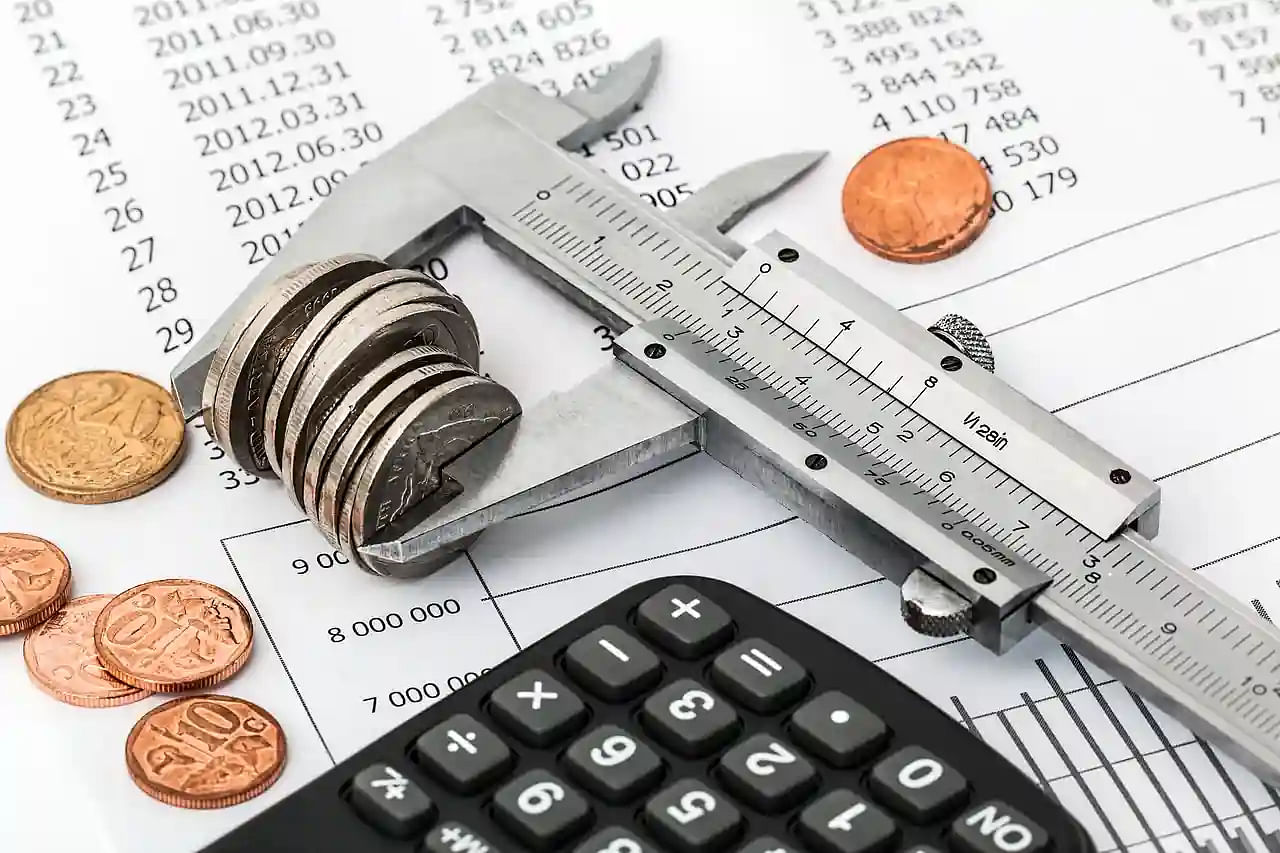
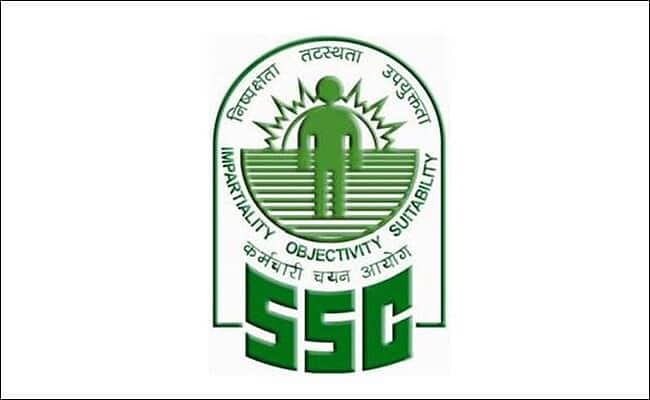
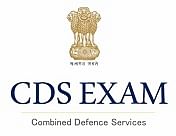


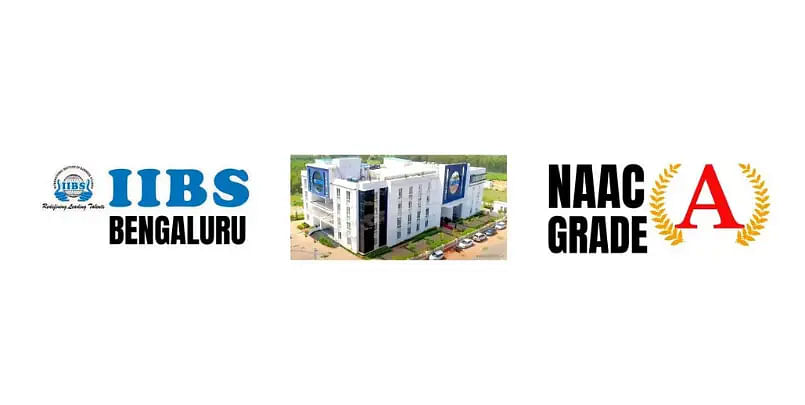





POST YOUR COMMENT